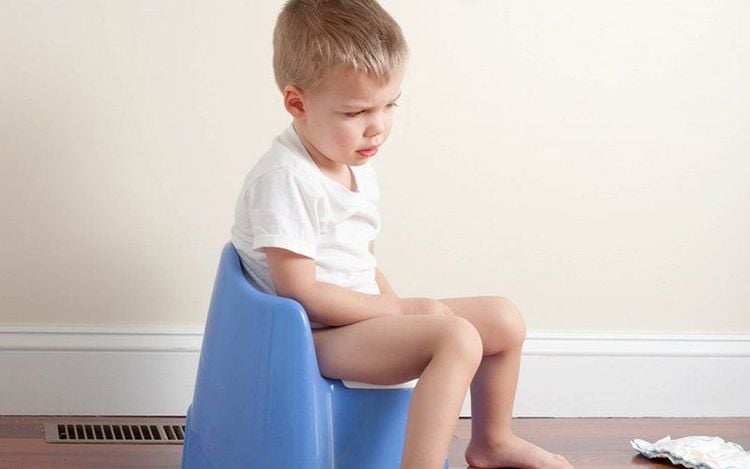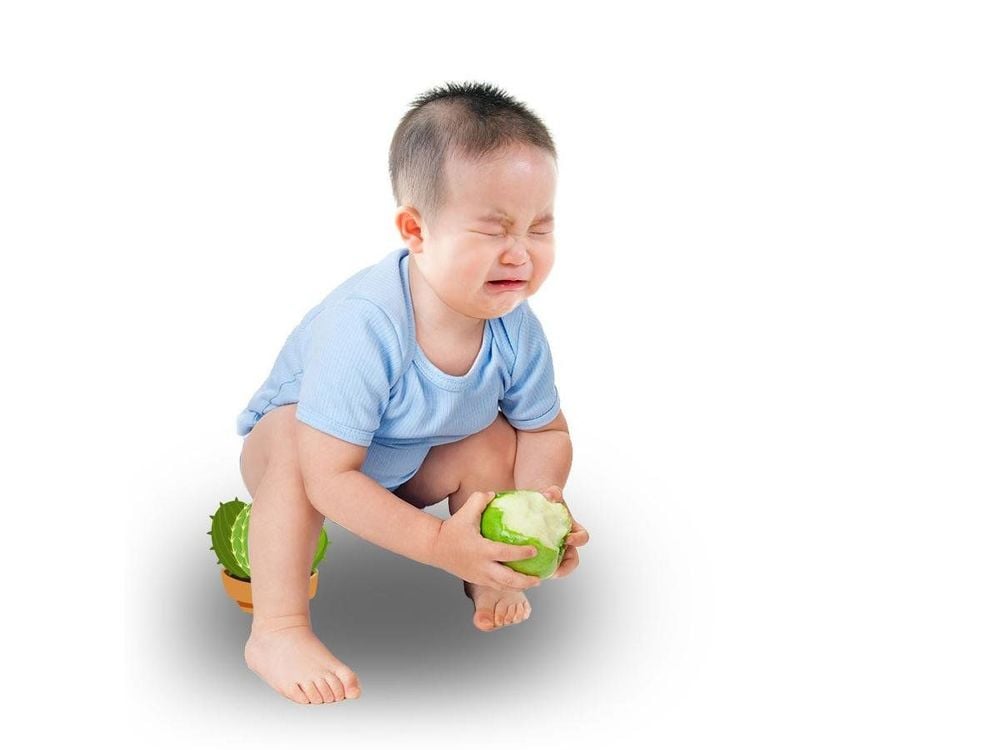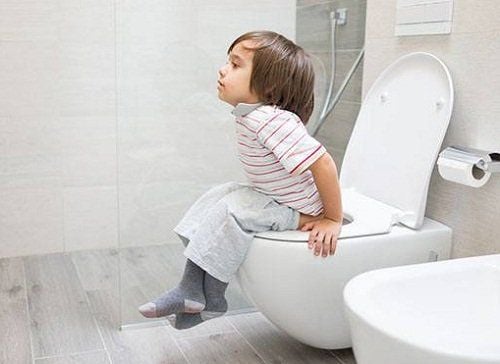This is an automatically translated article.
Constipation is not usually a cause for concern in children, but it can sometimes be a sign of a more serious condition. In case the child has constipation for 3 days or more or lasts for more than 2 weeks with weight loss, fever, vomiting, ... you should take your child to the doctor immediately.1. How is constipation in children understood?
If your child has trouble passing stools, it could be an underlying sign of constipation. There are 3 stages most likely to cause constipation in babies:In infants: When parents switch from formula to formula In toddlers: When first toilet training First start In older children: Around the time they start school There are many causes of constipation in children, namely:
Your child may ignore the need to have a bowel movement because they are too busy playing or are not comfortable. roof when using public toilets. Low-fiber diet: Fiber keeps the bowels moving, but many children don't eat enough fruits, vegetables, and whole grains. Not enough fluids: Water and other fluids help fiber do its job. Medications: Certain medications, including pain relievers and antacids, can cause constipation in children. Therefore, when there are signs of constipation, parents need to pay attention and take remedial measures to help the baby relieve.
2. Signs when babies are constipated
Your child may be constipated if they have any of the following symptoms:Abdominal pain Less than 3 bowel movements per week for children Your child struggles to hold stools: Signs include turning face, crossing legs or twist. Dry, thick stools that are hard to pass Stains and small stains in your child's underwear Bloody stools: Blood in your child's constipation may be a sign of an anal fissure, which needs to be treated quickly.

Ttrẻ bị táo bón 3 ngày khiến nhiều phụ huynh lo lắng
3. Should children with constipation 3 days or more go to the doctor?
Constipation is not usually a cause for concern in children, but it can sometimes be a sign of a more serious condition. In case your child is constipated for 3 days or more or lasts more than 2 weeks with the following signs, you should take your child to the doctor right away:Swelling in the abdomen Weight loss The child is constipated with blood Fever Vomiting Bleeding Perianal area If your child's constipation is persistently severe, the pediatrician may order some tests to find the cause:
Abdominal X-ray: This is a normal X-ray. to check for blockages. It is most commonly used to diagnose constipation. Barium enema X-ray: The intestines are coated with a dye so that any problems in the rectum, colon, or small intestine will be clearly visible on the x-ray. This is not usually done. Rectal biopsy: A very small tissue sample is taken to check for abnormal nerve cells in the rectum. This procedure is rarely needed.

Trẻ táo bón kéo dài cha mẹ nên cho trẻ đi khám bác sĩ chuyên khoa
4. Some notes when children are constipated
When children have persistent constipation, caregivers should note the following issues:Add foods rich in fiber for children: Fruits and vegetables (it is recommended that children eat 5 servings of fruits and vegetables per day) days for overall health, which helps prevent constipation) and whole grains can improve constipation in children. Give your child extra fluids: If your child doesn't drink a lot of fluids, the stools will harden before reaching the colon and the colon's job is to move water out of the stool. Therefore, children with prolonged constipation, parents need to add more water for children. Watch your baby's milk intake: Drinking a lot of milk can lead to constipation in some babies. It can also lead to anemia and make the child less hungry. Therefore, children aged 1-8 years should drink about 2 cups of milk a day and older children about 3 cups (those who are growing bones). Teaching children to defecate on their own: As mentioned above, the job of the colon is to remove water from the stool, so the longer the stool stays in the colon, the harder and harder it will be to pass. Children who have pain during bowel movements are more likely to want to avoid going to the bathroom, but this will only get worse. Therefore, to train your child to go to the toilet on his own, you can let him sit for a while after each meal, that is when the body is most likely to have a bowel movement. Medications: There are different medications that help with constipation. Some, like polyethylene glycol, work by pulling more water into the stool and making it softer. Sometimes, the use of glycerin suppositories can help stimulate stool movement. However, the use of drugs should be prescribed by a doctor, do not arbitrarily give children using drugs to treat constipation. In addition to changing nutrition, practicing bowel habits for children, ... children also need to add necessary micronutrients such as: Zinc, selenium, chromium, vitamins B1 and B6, ginger, cherries extract. ri (vitamin C),... to improve taste, eat well, reach the right height and weight, and exceed standards, have a good immune system, enhance resistance to less sickness and less digestive problems chemical.
The improvement of symptoms can take place for a long time, so it is recommended that parents be calm and persistent when supplementing with nutrients for children, even through eating or functional foods. In particular, the use of functional foods should choose those of natural origin that are easily absorbed, do not allow simultaneous use of many types or continuously change the types of functional foods.
For more nutritional knowledge and child care for each age, parents should regularly visit the website vimec.com and make an appointment with the leading doctors, pediatric and nutrition experts of the National General Hospital. Vinmec when needing advice on children's health.













